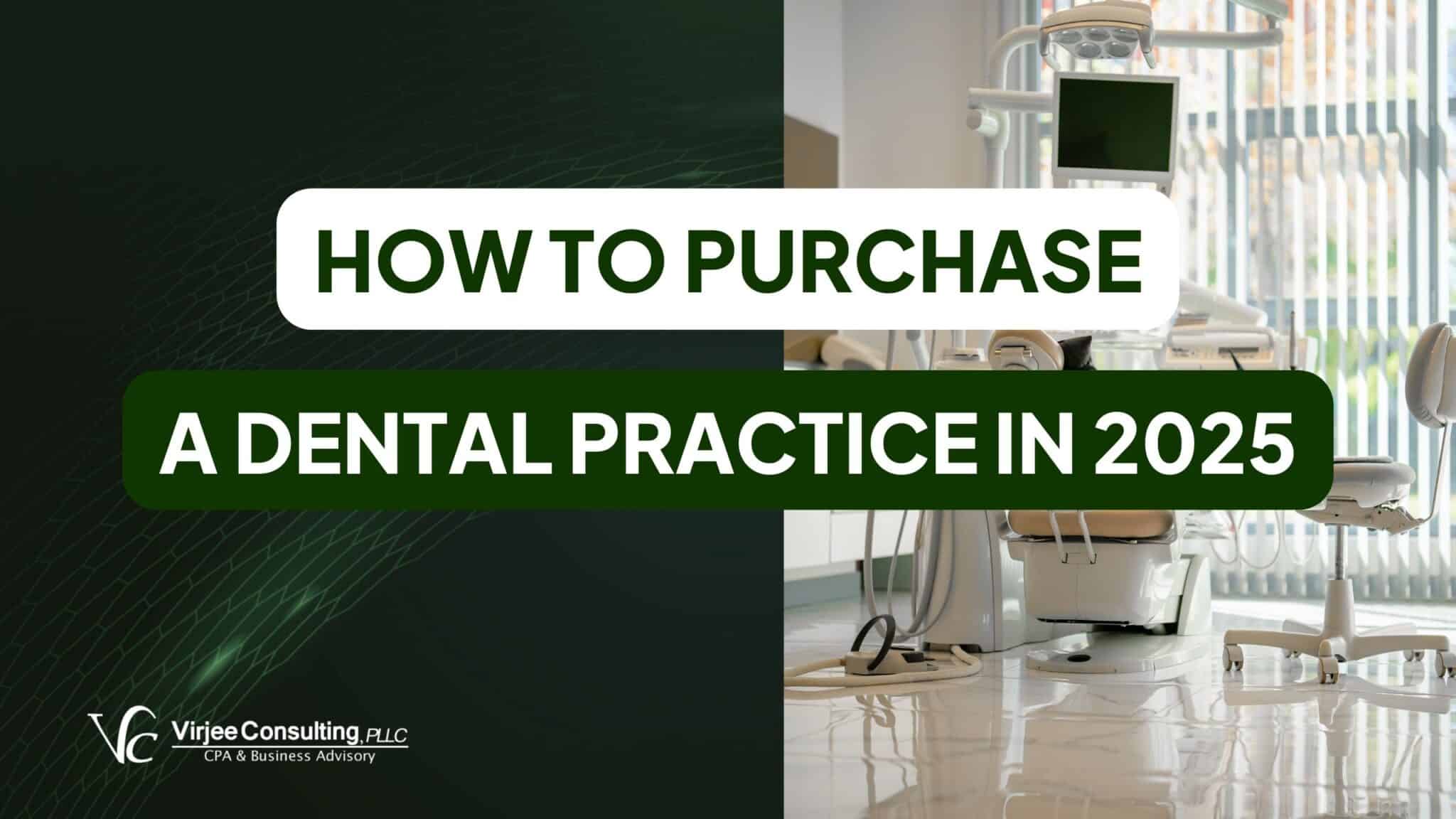Deciding to purchase a dental practice is no small decision. It’s a significant investment, and the risk that your investment might not yield positive returns will never be zero.
But that’s just part of doing business.
Now, it’s time to consider the key factors that will help you choose the right dental practice. This process comes with its own challenges, but don’t worry—you’re not in this alone. That’s why you’re here, and we’re here to guide you.
Grab a pen and paper to jot down these insights, or save this article so you can revisit it whenever you need.
Let’s break it down step by step and turn buying your dental practice into a clear, confident journey.
Assess Your Budget
First things first, when buying a dental practice, assessing your financials is critical to knowing if your money and borrowing capacity can cover the investment.
Start by calculating your liquid assets, which will form the foundation for your down payment, legal fees, and working capital. You also need to consider the dental practice’s expenses, not just the purchase price. Considering expenses in your decision will help you understand the cost structure of the dental business.
Next, you need to determine if you need additional financing on top of the cash investment that’ll come from your own offers.
Most lenders can fund up to 80-100% of the practice’s purchase price, provided the practice has strong cash flow and you have a solid credit history. However, we highly recommend that you maintain a debt-to-equity ratio of 60-40 where 60% is equity and 40% is debt.
Work with dental practice brokers or accountants to analyze the practice’s financial health, including profit margins, overhead, and projected income.
This ensures you’re not overextending yourself and that the practice can sustain both its operations and your financial goals. With the right planning, you’ll know exactly how much to invest and borrow to confidently move forward.
Perform Dental Practice Valuation
Understanding the value of a dental practice can feel overwhelming, especially if you’re not a business valuation expert. The good news? You don’t need to master every detail, but you should know what specific factors to look for. You need to look at specific financial metrics like annual collections, net profit margins, overhead expenses, and patient retention rates because these numbers will give you a clearer picture of the practice’s financial health and potential for long-term growth.
Don’t also forget to look at profit margins, as they show how efficiently the practice is running. The profit margins tell you what’s left after deducting expenses and how much goes to the owner after everything. Moreover, you also need to check patient records to determine how many are active, how frequently they return, and the average revenue per patient. When you purchase a dental practice with a high number of loyal patients is more likely to sustain its revenue after the transition.
While hiring valuation experts can offer a thorough analysis, they can be expensive. If you’re on a budget, consider consulting with a trusted accountant or using tools like practice valuation calculators to get a rough estimate. By focusing on these specific details, you’ll have a clearer understanding of whether the asking price is reasonable and whether the practice aligns with your financial goals.
Review the Patient Base
Understanding the patient base is critical when purchasing a dental practice because patients are the source of revenue. Start by reviewing active patient records, specifically those seen within the last 12 to 18 months. You need to determine if the patients are coming back at least once a year.
Next, analyze the payer mix, such as the balance between cash payments, private insurance, and government programs, as this influences cash flow and profitability. It’s important that you have enough cash for daily expenses and not wait for insurance companies or the government to reimburse you.
After that, take a closer look at patient age demographics since younger patients often seek preventative care and cosmetic treatments, while older patients typically need restorative work like crowns, implants, or dentures. Lastly, the location of the practice should be considered. Is it in a high-traffic area, near schools, or part of a growing community? Location matters because you’ll know which dental service you’ll need to focus on to provide the needs of the community.
Check the Condition of the Practice’s Equipment
When you plan to purchase a dental practice, it means that you inherit all its problems, which are commonly found in dental equipment. The condition of dental equipment is important when buying a dental practice because you need to be prepared for the future costs of upgrades or repairs.
You need to review the condition of essential dental equipment for signs of wear and tear, obsoletion, or damage. Check the list of dental equipment in the accounting records and pay attention to the date of purchase. Look for repairs that have been performed in the past, and how much had been spent for these repairs. This will help you identify whether replacements are needed immediately or can be postponed.
Hire a Dental Practice Advisor
Buying a dental practice isn’t your area of expertise as a dental practitioner. You’re an expert in dentistry, but business is a completely different ballgame. That’s why working with a business advisor who understands dental practice management can give you the insights you need to make the right decision.
At Virjee Consulting, we specialize in helping dental professionals navigate the complexities of managing and buying dental practices. Our team of experts is here to support you with key aspects like valuation, analysis, and strategic decision-making.
Schedule a discovery call today, and let’s talk about how we can guide you through the process of purchasing your dental practice.
You can also learn more about what we do on our Buying a Dental Practice page.
Until next time!




